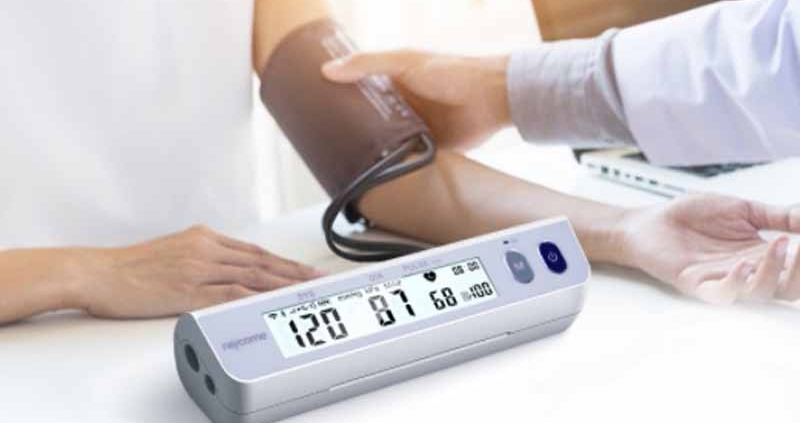The human body has a circulation system made up of an elaborate web of blood vessels. When blood is pumped by the heart, it flows through them to different body parts and organs. Blood pressure, therefore, refers to the rate of force at which blood flows through blood vessels.
Blood pressure is a major indicator of a person’s health. It has adverse effects on the body when it is too high or too low. For this reason, it is important to manage it within prescribed safe levels. In order to achieve this, it is important to understand what can cause blood pressure fluctuation.
Here are some of the reasons why your blood pressure may be fluctuating and how to manage it.
Table of Contents
Stress

Your body is very attuned to your emotional health. When you are worried or under pressure, stress hormones like adrenalin and cortisol are released into your bloodstream. They increase your heart rate and cause your blood vessels to constrict. Both of these actions cause your blood pressure to spike.
An example of the short-run effect of stress is the “white coat syndrome”. Due to anxiety, most patients register a higher BP reading on a hospital BP machine. In a more relaxed environment, their readings are likely to be slightly lower.
When the stressor is withdrawn, your BP tends to return to within normal parameters. However, for people that live in a constant state of anxiety or tension, stress can have a long-term effect.
Food

The foods you consume get broken down through directions and absorbed into your blood. As a result, they affect the company chemistry of your blood and therein, your BP as well.
Salt contains sodium which plays a role in the level of fluids in your circulation system. A high intake of sodium increases the level of fluids in your body which in turn raises your BP. It is advisable to avoid salty foods such as processed meats and junk food. Lean meats, fruits, and vegetables are healthier alternatives.
Caffeinated drinks can also get your blood pressure readings off the charts. There are many medical opinions on why caffeine has this effect. Some posit, for instance, that it triggers hormones such as adrenalin and others that affect the dilation of blood vessels. However, what is clear is that caffeine has a stimulative effect that will raise your BP and heart rate.
Weather

The body’s natural response to cold weather is to contract blood vessels. Narrow blood passageways increase the pressure of the blood flowing through them. As such, whenever you are cold, your BP may rise until you are warm again.
A Full Bladder

Medical research has shown that when your bladder is full and distended, it can elevate your blood pressure. The rise is temporary. If you empty your bladder before getting on the hospital BP monitor, you will get a more accurate reading.
Exertion

When taking part in an exerting activity such as exercise or lifting a heavy load, your heart rate increases. The heart instinctively begins to pump faster so as to provide more oxygen and energy that your body needs to handle the task.
A by-product of this increased pumping rate is higher BP. When you return to a resting position, your heart rate also returns to a resting beating rate, and BP stabilizes.
Dehydration

The volume of fluid in your body has a direct impact on blood pressure. When you are dehydrated, it means there is less fluid in your system which can lower your BP. An increase in the intake of fluids can remedy this fluctuation.
Over the Counter Medication

Some painkillers contain aspirin which is a blood thinner. Low dosage aspirin can lower blood pressure. Nevertheless, it should only be taken under the instruction of a physician.
Flu decongestant medicine ingredients such as ephedrine or oxymetazoline work by constricting blood vessels in the nose. However, they are absorbed in the bloodstream and thus can have the same effect on other blood vessels. For the duration that you are on them, your BP will likely be increased.
High Cholesterol
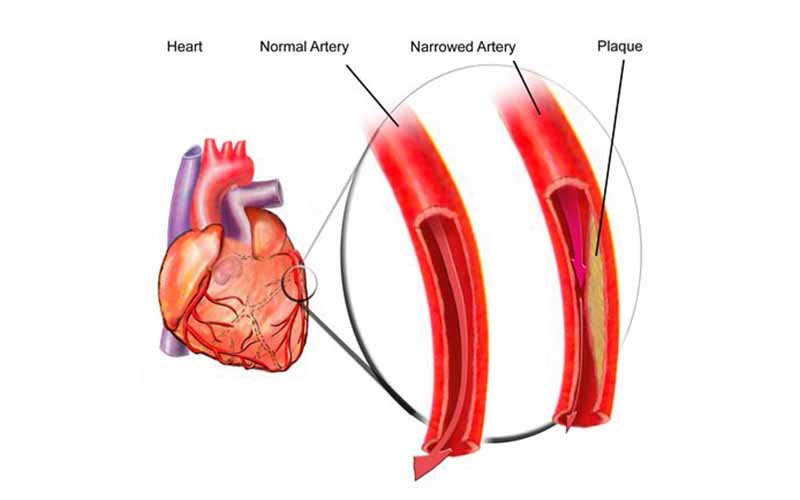
Cholesterol can be described as a fat-like substance that is naturally produced by the liver. It is essential for the synthesis of certain hormones and the formation of cell membranes. There are two kinds of cholesterol:
- Low-density lipoprotein
- High-density lipoprotein
Low-density lipoprotein(LDL) is what doctors refer to as ‘bad cholesterol’. When it occurs in high levels in your blood, it can accumulate on the walls of your arteries. The accumulation, known as plaque, narrows your blood vessels and increases your blood pressure. For as long as your arteries are clogged, your BP readings will likely remain high.
High-density cholesterol(HDL) helps lower the levels of ‘bad cholesterol’. If your lipid profile shows much lower HDL levels compared to your LDL, your doctor can prescribe medication to eradicate your bad cholesterol. In severe cases, surgery becomes inevitable to prevent the full blockage of arteries. You may also have to be put on medication to manage your blood pressure.
Diabetes

Diabetes results in a high occurrence of glucose in the bloodstream. When glucose levels are not carefully managed, the inner parts of arteries begin to get damaged. In response to the damage, the arteries harden and become narrower thereby increasing BP.
It is for this reason that diabetes and hypertension tend to occur together in some patients. Diabetes hypertension can be avoided by strictly adhering to diabetes management protocols.
Pregnancy

In order to meet the circulatory needs of both the mother and the growing child, the circulatory system expands during gestation. Due to this, some expectant mothers are likely to experience low blood pressure for the duration of their pregnancy.
On the other hand, extremely high blood pressure can also occur during pregnancy. It is known as pre-eclampsia and is a life-threatening condition. It occurs in the second trimester of pregnancy and is likely to resolve after delivery. In some cases, though, it can persist into the postpartum phase. It requires keen observation and an expectant would probably need to have a bp checking machine at home for monitoring.
Anemia
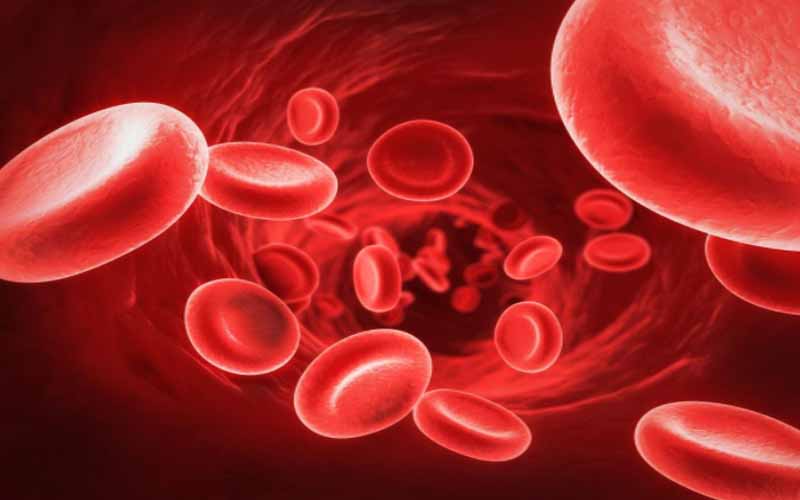
Low blood levels due to poor nutrition or illness can cause blood pressure to fall. It usually presents with fatigue and dizzy spells. It is common among expectant mothers and older people.
Iron-rich foods such as dark green leafy vegetables and liver can help improve blood levels. Your doctor may also prescribe iron supplements if they deem it fit.
Normal Fluctuation Ranges For Different Groups
Within certain sets of circumstances, some ranges of fluctuation are normal and to be expected. In such cases, a medical professional would choose to monitor your BP than take any intervention measures. Such a decision would be based on specific factors such as:
Age

Even while in good health, age takes a toll on the body. It would therefore be unrealistic to expect the BP of a 60-year-old to be within the same level as that of a 20-year-old.
When taking blood pressure readings, older people tend to have higher numbers. For people above the age of 55, blood pressure can fluctuate up to about 129/79 mm Hg. However, according to current guidelines, anything above that should be treated as a hypertension diagnosis.
For younger people, recommended pressure limits are 120 mm Hg for systolic pressure and above 80 mm Hg for diastolic. That said, a healthy young adult should have BP that is below these maximum ranges.
Gender

Research studies have observed that men typically have higher BP than women. It is linked to why they are more predisposed to renal failure and cardiovascular ailments.
The recommended range for both men and women are, nonetheless, still guided by the 130/80 mm Hg standard. The only difference is that a small deviation is allowed between the genders.
Further, premenopausal women seem to register higher levels of blood pressure. The change is mainly attributed to changes in hormonal balance.
Conditions and Illnesses
Conditions such as pregnancy and illnesses like those involving the kidney can alter BP ranges. Based on different factors such as medication, normal ranges in these circumstances can be slightly out of prescribed margins. They are handled on a case by case basis depending on what the attendant doctors feel are safe parameters for the patient.
Why is it Important to Manage Your Blood Pressure?
There are benefits to reigning in errant blood pressure early and long-term consequences if it is neglected. Let us examine both scenarios.
Benefits of Long-Term Steady Blood Pressure
The peace of mind that comes with good health is unmatched. It is a worthy investment and pursuit in life. Maintaining a consistently healthy BP accords you benefits such as:
A Productive Life

When you have a healthy and normal range of blood pressure, you can go about life more freely. You are less bogged down by the challenges of managing a chronic condition like hypertension. It allows you to pursue your goal without limitations that come with health challenges such as fatigue and depression.
Better Life-expectancy

It is a beautiful thing to be able to live a long and full life. Medical evidence shows, having a healthy BP improves life-expectancy with all other factors held constant. On average, men and women with normal blood pressure live 5 years longer than those with hypertension.
Financial Benefits

It is cheaper to avoid BP complications than it is to treat them. When you are diagnosed with chronic low or high blood pressure, medication becomes part of your daily life. Moreover, you will need periodic visits to the doctor as well as personal daily blood pressure monitoring. All these costs put together accumulate to a large sum and can be a financial burden.
The Implications of Unsteady Blood Pressure
High blood pressure does not occur in isolation. It entails a host of symptoms and side effects to a person’s health. The implications are serious and should be avoided at all costs. Irregular blood pressure may result in:
Life-threatening Illnesses

Long durations of high blood pressure wear out blood vessels and can weaken or enlarge the heart. When this happens it places you at risk for various heart attacks and other cardiovascular diseases. Damaged blood vessels are also the reason why hypertension patients are at risk for kidney failure.
HBP is additionally tied to hemorrhagic strokes. They happen when the sheer force of blood flow is so intense that it bursts crucial vessels. Strokes can be life-altering and in some cases, the survival chances are rather low.
Career Limitations

In terms of career choice, you may not be able to take on certain jobs while suffering from unsteady BP. The jobs may either pose a risk to you or you may put other people’s lives at risk while doing them. Flying is a practical example of this. You may have great abilities as a pilot but hypertension may be exacerbated by frequent flying.
It is disheartening when a disease robs you of the chance to fulfill your dreams. Unfortunately, this is the reality of living with a chronic condition.
Depression

Illness is a major stressor in anyone’s life especially when it is life-threatening. Plus, the limitations it imposes on your life as well as the costs involved can be depressing. Though you may understand that stress is bad for your health, you may not be able to avoid feeling low and defeated.
Working Towards a Healthy BP; How to Manage Your BP at Home
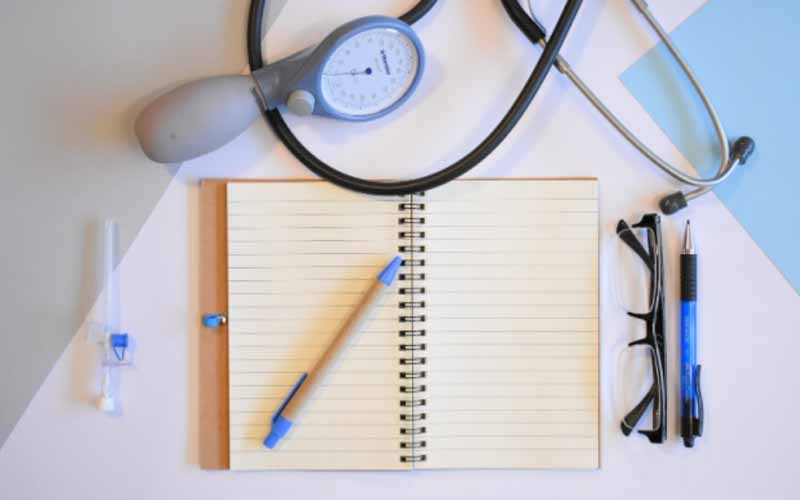
Perhaps the only upside of blood pressure challenges is that you can commit to managing them and turn your health around. Changed lifestyle habits have had a remarkable effect on many patients. In some, the need for medication is even completely eliminated.
How can you work toward healthier blood pressure levels?
Using a BP Monitor

The symptoms of unsteady blood pressure can be covert and easy to dismiss as the effects of a long day. Most people may not even know that they have elevated or dangerously low blood pressure until they are in crisis. Still, even when the symptoms are not as pronounced, your organs and blood vessels are quietly getting damaged.
Further, when you have had a diagnosis and are on medication, you may believe that all is well yet it is not. For a variety of reasons, like poor diet or stress, your readings may still be high but you may be unaware.
Monitoring your blood pressure is very important if your aim is to attain healthy consistent levels. Whereas you can get measurements at the hospital using a hospital-grade blood pressure machine home checks are also recommended. They can help you or your physician:
- Know when it is necessary to adjust your medication
- Identify particular habits that affect your BP
- Identify the onset of a crisis and seek medical intervention
- Track your BP improvement over time
Track your BP improvement over time

Different blood pressure monitor manufacturers develop different technologies for their devices. Also, devices vary based on what part of the arm they are placed on. There are wrist blood pressure monitors and upper arm monitors. Finally, you have a choice of the simpler digital versions of the manual blood pressure machine.
The best blood pressure monitor to buy would be one that is accurate, easy to use, and safe.
Digital brands may be best as all you need to do is wear the cuff and wait for the systolic and diastolic pressure to display. Still, take your time to compare brands, their technology, and BP device price to find what will be best for you.
Make an effort to:
- Take your readings at the same time each day
- Empty your bladder and settle down before measuring your BP
- Follow the manufacturer's instructions on placement of the device
How to Choose a Blood Pressure Monitor
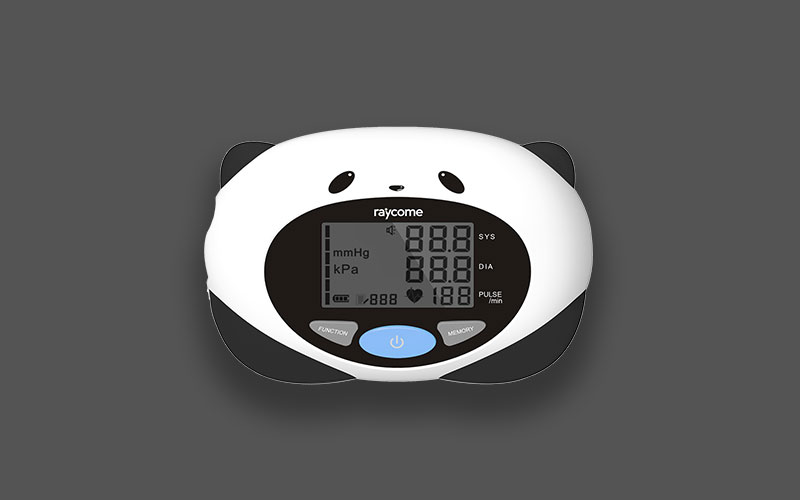
Digital sphygmomanometer brands in the market often use single air tube technology. They calculate systolic and diastolic measurements based on oscillometric wave readings. Granted, it is a great way to measure regular BP but when it comes to irregular cases, it is inaccurate. Moreover, there is no standard way to calculate oscillometric readings. It leaves room for error which can be dangerous.
You may be better served by monitors from BP apparatus manufacturers that have sought to address such subtle but critical shortcomings. The Raycome Pulsewave devices are an example of such devices. They give you accurate readings using 2-sensor algorithm technology thereby eliminating the possibility of human error.
The Raycome Pulsewave devices are a special type of digital blood pressure monitor designed with dual-bag technology. During BP measurement, one bag in the cuff increases pressure while the other detects the pulse wave like a stethoscope. It also takes multi-point measurements of pressure between pulses for better accuracy. The device does all the hard work. All you have to do is read your displayed results and record them.
Workouts

Exercise has a myriad of benefits for your overall health. For your BP, especially, it can make a big difference. Being physically active spurs your heart to pump more vigorously. When this happens regularly, the heart muscles get stronger and pump blood with more ease and less pressure.
In addition, workouts help to keep your weight in check and burn off harmful fats. You may notice that your blood pressure is lower shortly after your exercise session but that is only temporary. In order to get the long term benefits, you need to be consistent with your exercising. You could use a blood pressure app to keep track of your progress.
Activities such as yoga have been found to improve blood flow. Tai chi, running on a treadmill, walks, and weightlifting with a trainer’s guidance are all options you can explore.
It is advisable to check with your doctor on whether your workout regimen is ideal. More so if you have other comorbidities other than BP issues. Similarly, pay attention to your body; when you feel dizzy or nauseous, stop the activity.
Nutrition

The food on your plate could either be killing you or improving your life. That may sound dramatic but given the big role that food plays in your health, it is indeed true. It may be time to reevaluate your diet and incorporate food options that can improve your immunity and well-being.
Cardiologists have found that high sodium levels facilitate the production of harmful metabolites which increases the chances of cardiovascular illness. It would be best to cut out food rich in salt from your diet. Try giving up snacks like chips for celery and carrot slices.
You may benefit greatly from working with a nutritionist to come with a meal plan. Clean eating is rejected by many because it seems bland and restrictive. There are reasonable and fun diets you can try that would still allow you to enjoy food but in a healthier way.
Emotional Health

We place a life and death kind of importance on our jobs and certain relationships in our lives. At their expense, we work ourselves ragged and carry heavy emotional burdens. As you deal with all these pressures, your body is suffering as much trauma as your mind.
Endeavor to care more for your emotional and psychological wellness. Take time to unwind and seek therapy when you are overwhelmed. Take breaks from work and social interactions to recharge. You may be oblivious to it but whenever you are stressed, your immunity and blood pressure are compromised.
Conclusion
Becoming more aware and cautious of your health is one of the most important decisions you could ever make. Awareness may not just save you but also those around you that you hold dear. By encouraging them to get regular check-ups, you could unknowingly save their lives. Early detection of most conditions, including irregular BP, makes it easy to mitigate them before they advance into more severe stages.
Blood pressure fluctuations can, in most cases, be salvaged and remedied, unlike most other chronic conditions. Take that first step and find out the status of your BP.

